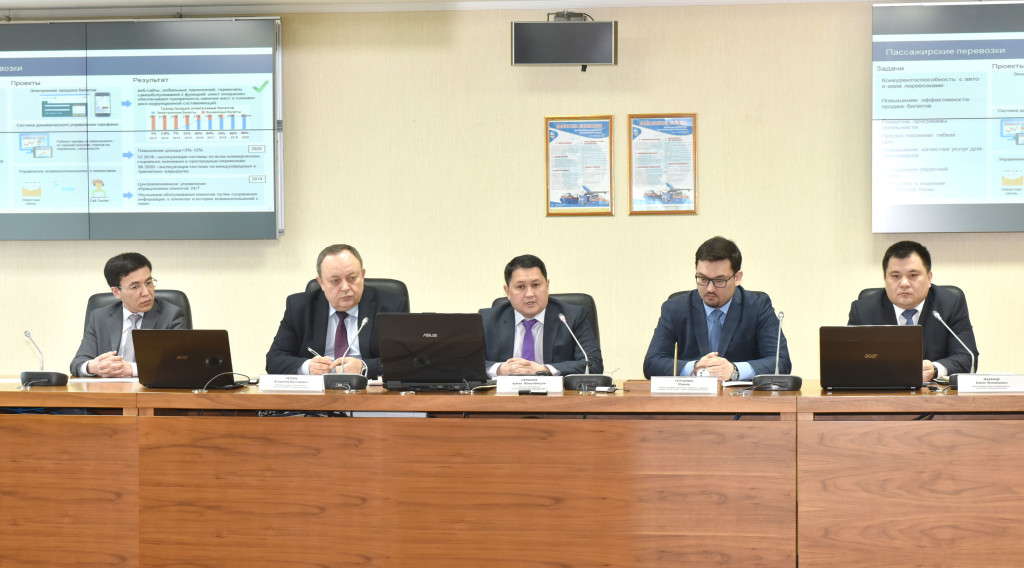ASTANA – Kazakhstan Temir Zholy (KTZ) has introduced digital route diagnostics, a traffic management centre and digital services at 17 stations as part of the Digital Railway information technology development strategy. The projects are being incorporated in cargo, passenger and multimodal transport at railway infrastructure facilities and in corporate tasks.
“The Digital Railway strategy envisages digitisation of the company’s business models and introduction of new technologies in all key operating segments – freight and passenger transportation, infrastructure and transport logistics,” said Arman Nurushev, KTZ Vice President for Information Technologies, at a March 29 Central Communications Service briefing.
The task is set to boost a customer-focused culture. An online ticket sales system has been launched and there are plans to present a dynamic tariff management system and centrally-manage customer requests round-the-clock.
“Digitisation of the transport and logistics sectors ensures transparency in the organisation of transportation, increases efficiency and reduces operating costs,” he said.
Introducing and operating cargo movement information systems is aimed at increasing the organisation’s transportation efficiency, said KTZ-Cargo Transportation Integrated Planning Executive Director Vladimir Petrov. The automated systems enable operational transportation management, integrate train-wagon route processing, planning and forecasting, as well as control diesel fuel consumption and electric power.
The contract and commercial work automated management system is considered to be one of the cargo sector’s successful projects. It operates based on a single electronic window used in planning, organising and implementing transportation and electronic payment for services related to goods transport.
“Shippers are able to plan transportation by submitting an application, issue a transportation document and calculate the preliminary tariff for transportation online through this system. Currently, more than 20,000 customers and more than 5,000 employees of freight stations are registered and work in the system,” said Petrov.
The digitisation processes also benefit the corporate sector, such as the positive results seen from the integrated planning system with Machine Learning. The system provides for allocating resources and making effective decisions in operational, commercial and investment planning. Cost optimisation related to the transportation process is predicted at 3-4 percent by 2021.
Due to the major work carried out in transport and logistics infrastructure, transit traffic growth rates in the China-Europe-China direction increased two times in 2017.
The large transport infrastructure facilities implemented as part of the Nurly Zhol programme ensure high cargo throughput. The infrastructure logistics attract major global transport market players to Kazakhstan, including COSCO Shipping and DP World.
United Transport and Logistics Company (UTLC) and the Trans-Caspian International Transport Route International Association operate in the region. Unified tariff conditions were established and technological schemes introduced, contributing to making the country the transport and logistics hub of the region.


